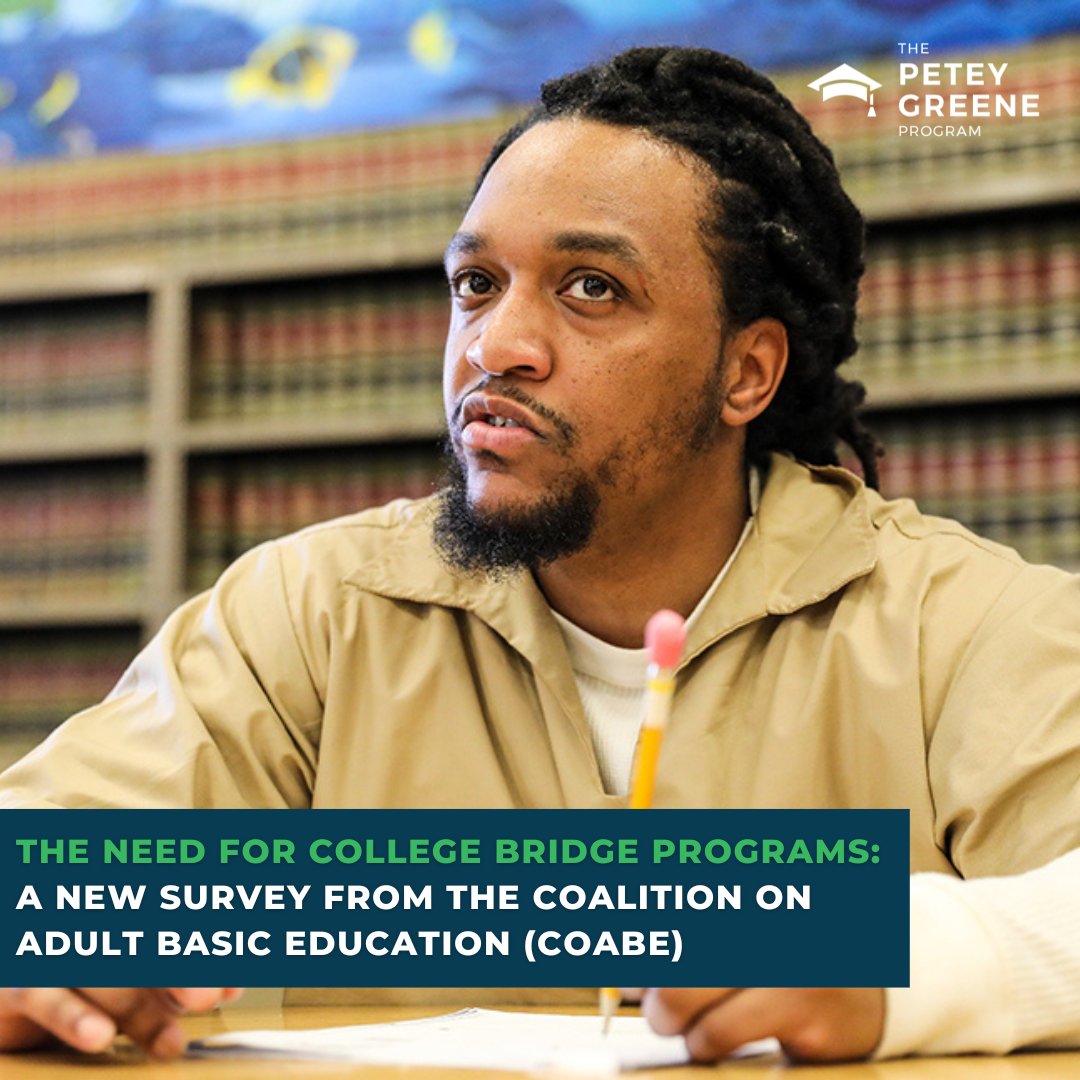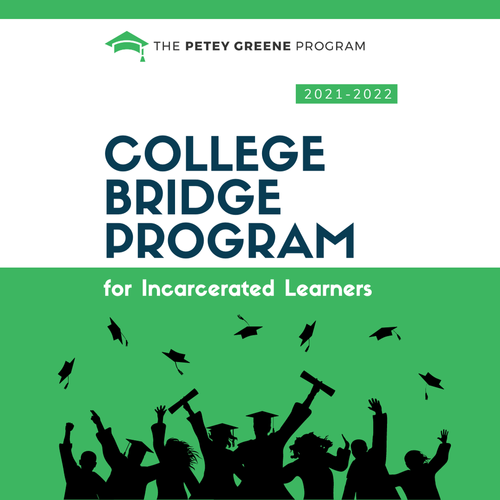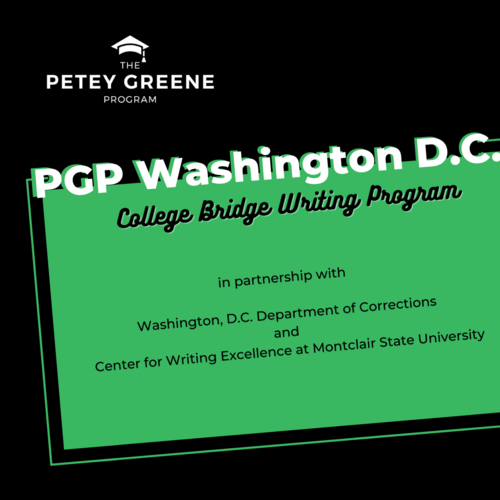College Bridge Program
for incarcerated and formerly incarcerated learners
The need for college bridge programs
Currently and formerly incarcerated students, even those with a high school credential, often lack the crucial literacy and numeracy skills necessary to succeed in college. To address this gap, the PGP offers a College Bridge program that supports incarcerated students who want to acquire the writing, critical thinking and math skills required to access postsecondary programs, and fosters educational self-efficacy and confidence vital for overall personal success.
The College Bridge program has two components–a writing and a math course, each offered over 9 or 12 weeks. Classes are taught by faculty and graduate students at the PGP partner universities and supported by the PGP volunteer tutors. Piloted at the DC Jail in 2020, the program has since been offered to more than 300 students in Massachusetts, New York, New Jersey, and Pennsylvania. Our current sites include SCI Phoenix, in collaboration with Villanova University, FCI Fort Dix (New Jersey) in collaboration with Princeton University’s Prison Teaching Initiative, and SCI Greene (Pennsylvania).
Humanities-rich writing and critical thinking course
Strengthening students’ writing, critical thinking, and meta-cognitive skills is especially important to ensure success in higher education. For this reason, the first component of the College Bridge program is a writing course in which students learn to write in an organized and persuasive manner that can be applied to college admission essay writing, coursework, and professional writing needs like cover letters and resumes.
Mathematics for everyday life, higher education, and beyond
In addition to being a requirement for college graduation, basic mathematics is essential to everyday life–from understanding the news to day-to-day budgeting and planning for household projects. The College Bridge math course introduces students to basic algebra, geometry, and statistics with an emphasis on real-life applications. Learning the concepts behind the math, students build a solid foundation to expand the computational and calculation skills that are needed to enroll in college level math courses.
Student-centered pedagogy
The College Bridge instructors employ a student-centered learning model; similarly, tutoring enables social interaction that supports students through their educational journey with individualized attention. Our students are not passive recipients of information: College Bridge courses are structured for engaged student learning that builds students' confidence as active thinkers, engaged in dialogue and problem solving with their peers, tutors, and instructors.
Proven effectiveness
We consistently monitor the effectiveness of the College Bridge program. A peer-reviewed study of the first pilot showed that the writing course strengthened students’ skills: the comparison between diagnostic assignments and final papers revealed an average increase of 0.5-1 points in a 3-point numerical rubric (Benetollo, 2021).
At the end of the pilot course, a student described being challenged by the course materials: “Each week the material surprisingly became more interesting. I enjoyed the diversity of the assignments. It was as if we were at an amusement park and each assignment was a different roller coaster of genres.
“Wow! I get excited from recounting the experiences. Weekly, I was encouraged to open my mind, think conceptually, and challenge myself to be my best.”
Skills assessments, surveys, and debriefs demonstrated that subsequent courses had a similarly significant impact on students’ skills and confidence. In final surveys, students reported that the course helped them develop stronger literacy and math skills.. Their answers demonstrated considerable self-awareness, mentioning specific skills that they had learned, consistent with the objectives of the course. Students also displayed increased confidence in their writing and math skills. For the writing course,they developed a deeper awareness of their writing process and their strengths and areas for improvement as writers. They recognized the existing link between writing, reading and critical thinking.





